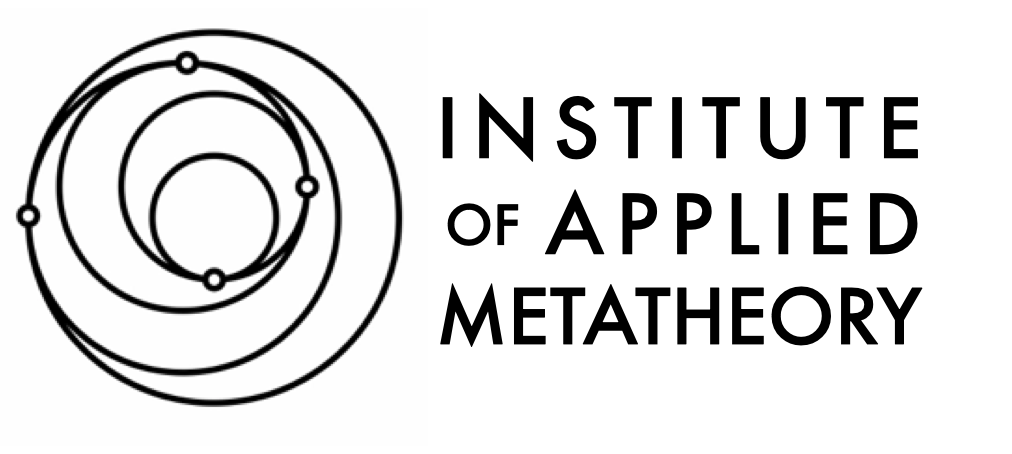IAM Spotlight: The Faith Development Pathway
Dear friends,
I am thrilled to introduce you to the Faith Development Pathway Initiative (“FDP”), the Institute of Applied Metatheory’s newest social impact project. Led by Brendan Graham Dempsey, the Faith Development Pathway is a groundbreaking initiative aimed at developing the world’s first open-access protocol for the developmental maturation of faith and ultimate concern. In addition to the written overview below, I also invite you to view the recent IAM Insider where Brendan walks us through some of the early findings coming out of the project.
Overview
As you may know, IAM’s mission is to apply big picture thinking to foster an Integrative Worldview and promote human flourishing in the 21st century, and this project sits at the very heart of that mission. Drawing from the legacy of James Fowler’s stages of faith and advancing it through the application of neo-Piagetian hierarchical complexity scoring, the FDP systematically maps the evolving cognitive and existential architecture of human meaning-making. It offers a rigorous developmental framework capable of tracing the trajectory of faith formation from early mythic structures to more reflective and integrative modes of understanding.
The ultimate aim is to rationally reconstruct the topography of healthy faith development over the lifespan and make this knowledge available to a wider audience. Through accessible tools, developmental assessments, and applied pedagogies, the FDP will equip educators, spiritual leaders, curriculum designers, and social entrepreneurs with a scientifically grounded, spiritually attuned developmental protocol. The initiative is conceived as an incubator for a future Faith Development Institute that can house, refine, and disseminate this protocol across disciplines, faith traditions, and global contexts.
The Opportunity
At the heart of the Faith Development Pathway (FDP) lies a recognition of a largely unacknowledged but urgent global dilemma: humanity lacks a coherent, empirically grounded understanding of how faith itself develops. While faith and ultimate concern are among the most powerful forces shaping human lives and civilizations, they are too often treated as static belief systems rather than dynamic developmental processes. This reification results in widespread misunderstanding, disillusionment, rigidity, and intergenerational conflict across religious, spiritual, and secular communities alike.
Existing religious education, spiritual formation, and philosophical inquiry rarely incorporate the cognitive-developmental insights that show how our ultimate concerns evolve with life experience and structural capacity. As a result, institutions meant to support growth too often stifle it, triggering faith crises, ejections from communities, or regressions into fundamentalism. Without a widely recognized developmental framework, efforts to reform or deepen spiritual life remain vulnerable to fragmentation, oversimplification, and stagnation.
Transformational Thesis
The central thesis of the FDP is that faith—understood as the structure and content of one’s ultimate concern—is not a static possession but a dynamic and reconstructable developmental process. When faith is studied and supported as a staged, life-long maturation, new doors open for empowering human beings to grow in existential wisdom, psychological integration, and spiritual coherence. By marrying the empirical precision of hierarchical complexity science with the existential depth probed by faith development research, the FDP establishes a robust, interdisciplinary bridge between psychological science and spiritual development.
This transformation is not merely conceptual; it is pedagogical and practical. With the FDP, educators and leaders can gain access to empirically grounded maps and metrics of meaning-making that can guide the design of faith-nurturing curricula, interventions, and lifelong learning programs. These tools will help individuals cultivate ever-deepening forms of responsibility, transcendence, and compassionate universality. FDP thus represents a crucial step in aligning the science of developmental psychology with the soulful aims of human spiritual flourishing. Such materials would be key resources to responding adequately to the crisis of meaning at the heart of the metacrisis.
What’s At Stake
The implications of the Faith Development Pathway are immense. At stake is nothing less than how societies understand and nurture the existential core of the human being. In an age of increasing polarization, religious disaffiliation, and meaning crises, the FDP offers a developmental alternative to both dogmatic rigidity and nihilistic despair. It holds the promise of building spiritually literate cultures—ones capable of honoring tradition while facilitating growth, holding difference without dissolving into relativism, and cultivating sacred commitments without exclusionary zeal.
If successful, the FDP will seed a new generation of spiritually and psychologically mature leaders, educators, and citizens who can navigate the challenges of pluralism, ecological crisis, and cultural fragmentation with nuance, empathy, and developmental insight. Without such a framework, humanity risks continuing to misinterpret faith as a fixed worldview rather than a lifelong journey. But with it, we may finally be able to respond to one of the most essential human questions—What is of ultimate concern?—with the depth, dignity, and developmental clarity it deserves.
Loving regards,
Robb
P.S. If you have been looking for a way to leave a legacy impact by supporting the world’s most powerful Archimedean transformational levers, exemplified by projects like the Faith Development Pathway, please be in touch about joining IAM’s Legacy Circle. IAM’s support continues to grow due to visionary funders who want to see the Integrative Worldview come to life, and we are committed to keeping the momentum going.

